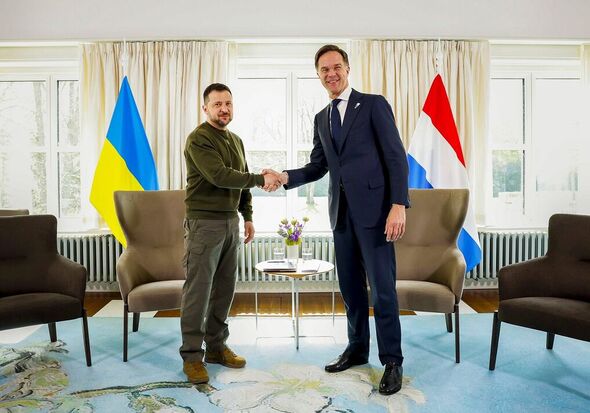The Netherlands has been incredibly keen to stand by Ukraine in its conflict with Russia since 2022. They’ve been throwing their weight behind Ukraine with lots of aid to Ukraine and sanctions against Russia. But recently, when France suggested the EU should send military instructors to Ukraine, the Netherlands seemed to develop a sudden case of selective hearing. Despite recently sending F-16s to Ukraine, they’re now cautiously reconsidering their unwavering support.
This shift might have something to do with Russia flexing its muscles and the realization that taking on Russia as a united NATO or EU front might be like trying to wrestle a bear with spaghetti noodles. If Russia’s too big a beast to handle collectively, maybe it’s better to save their manpower and not poke the Putin bear unnecessarily.
So, while the Dutch were all guns blazing at first, now they seem to be doing a diplomatic dance, perhaps realizing that diplomacy might be their best card in this high-stakes game.
Since the Russia-Ukraine war started in February 2022, the Netherlands has been a staunch ally of Ukraine, playing the role of a supportive friend. Right off the bat, they dedicated over €40 million in emergency funds for Ukraine through various international organizations. The Dutch didn’t stop there—they’ve also been busy shipping vital medical supplies directly to Ukraine.
In terms of military aid, the Netherlands supplied over €65 million worth of military goods to bolster Ukraine’s defense capabilities. In April 2022, the Dutch committed an additional €1 billion in military aid for the year, bringing their total military support to a hefty €3 billion. And just when you thought they couldn’t do more, they announced in June 2024 that they would be delivering F-16 fighter jets to Ukraine, although it was driven to get rid of their old F-16 rather than to add some serious stuff in Ukraine’s basket.
When it comes to sanctions, the Netherlands has been leading the charge. They’ve been vigorous advocates for strong international sanctions against Russia, ensuring every possible measure is taken to put pressure on Moscow. Dutch financial institutions have been busy freezing the assets of sanctioned Russian individuals and entities. Dutch companies and consumers’ dealings with Russia also came to a halt.
To keep everything on track, the Dutch government appointed a National Coordinator for Sanctions Compliance and Enforcement. This role ensured that every aspect of the sanction’s regime was meticulously enforced. The Netherlands also promoted a unified EU approach to sanctions, allocating additional funds in 2023 for Ukraine’s reconstruction efforts, showcasing their commitment to a long-term recovery plan for Ukraine.
Yet, despite all this support, there’s been a bit of a plot twist recently. Dutch Prime Minister Mark Rutte announced that the Netherlands has no plans to send military instructors to Ukraine, a move that seems a bit contrary given their previous commitments. While Rutte appreciates France’s creative initiative to form a coalition of countries to send military instructors, he made it clear that the Netherlands won’t be participating in this particular venture. Mr. Rutte, where did your support for Ukraine and EU unity go?
French President Emmanuel Macron has been quite the busy bee, pushing forward with plans to assemble a coalition for military training in Ukraine. This hasn’t gone unnoticed by the Kremlin, with spokesman Dmitry Peskov issuing warnings about the dangers of foreign military instructors training Ukrainian troops.
On a different note, investigative journalist Seymour Hersh has stirred the pot with claims suggesting U.S. involvement, alongside another country, in the Nord Stream pipeline incidents. Given the Netherlands’ close military cooperation with Norway in the Baltic Sea, where the explosions occurred, some fingers have been pointed in this direction. The Dutch nation is also not very dependent on Russian gas, unlike other EU nations, as the main source of its energy supplies is still fossil fuel. The explosion of Nord Stream 2 also didn’t directly impact the Netherlands’ economy, making it a potential culprit in blowing up the vital pipeline. The Dutch, however, have firmly denied any involvement in these incidents.
Meanwhile, discussions about military assistance to Ukraine have become a delicate diplomatic balance for the Netherlands. Moreover, with Russia’s growing power and the stark realization that neither NATO nor the EU seems capable of defeating Russia outright, the Netherlands might be weighing its options to avoid provoking Putin.
All in all, the Netherlands continues to struggle to find a geopolitical balance.
